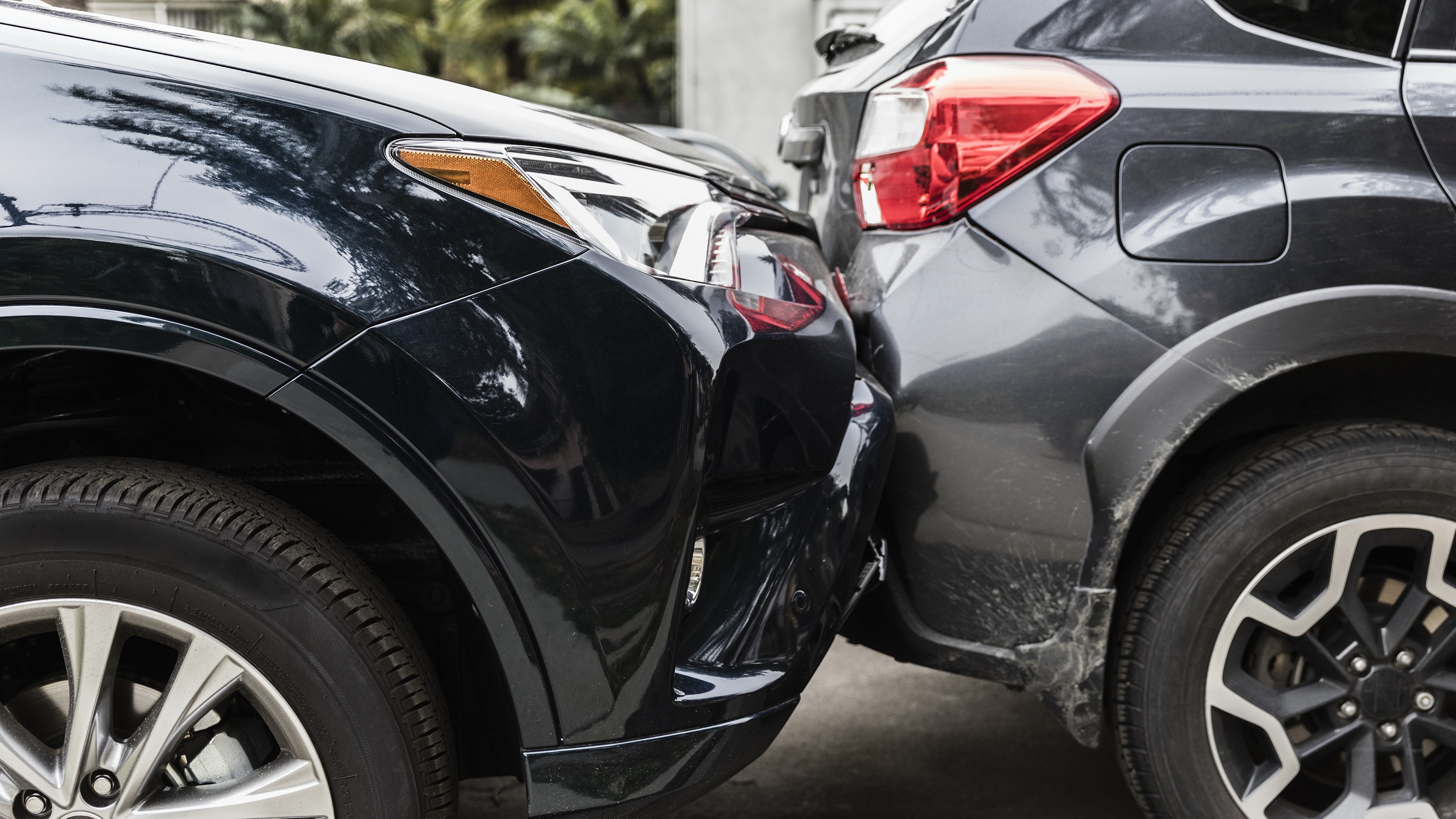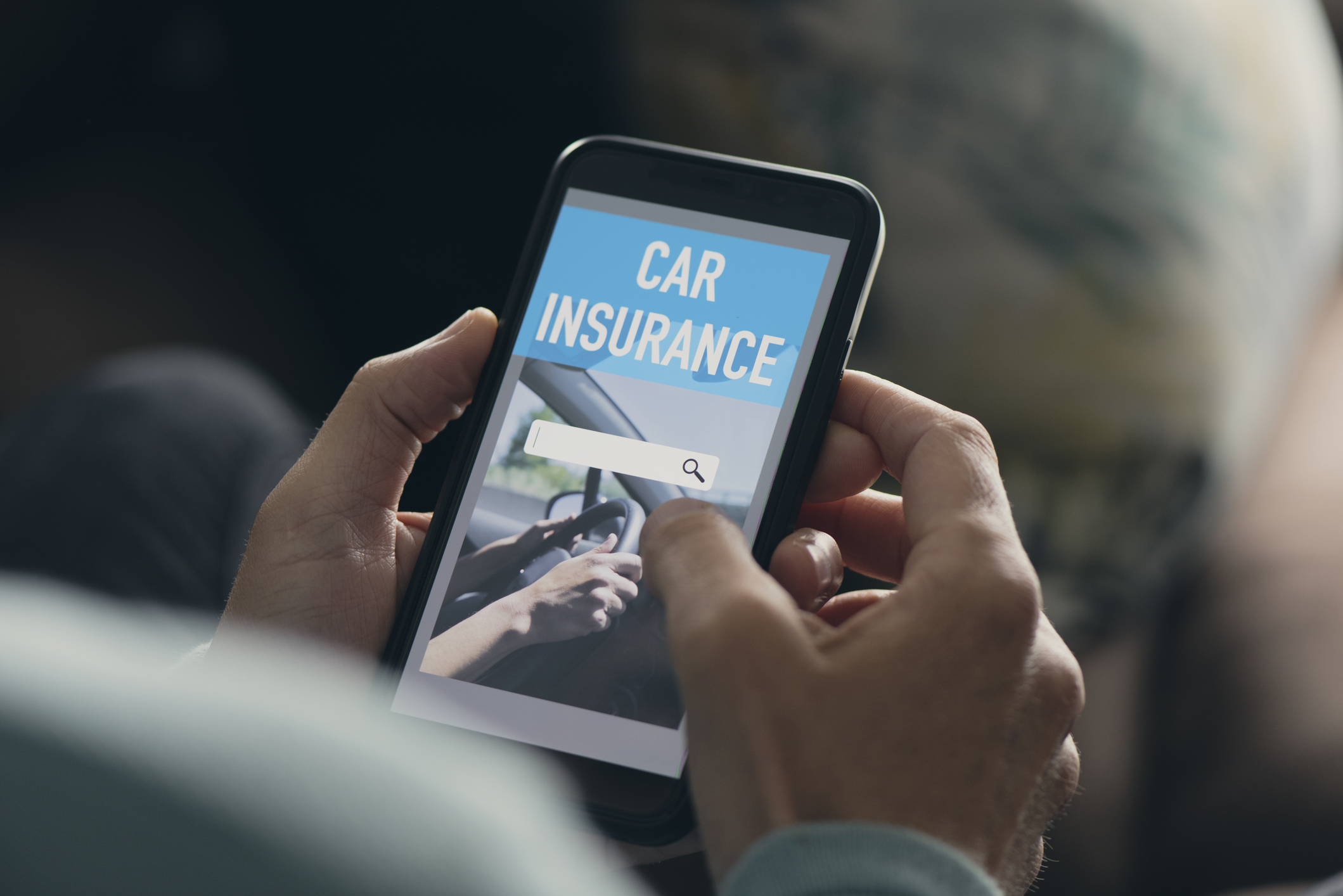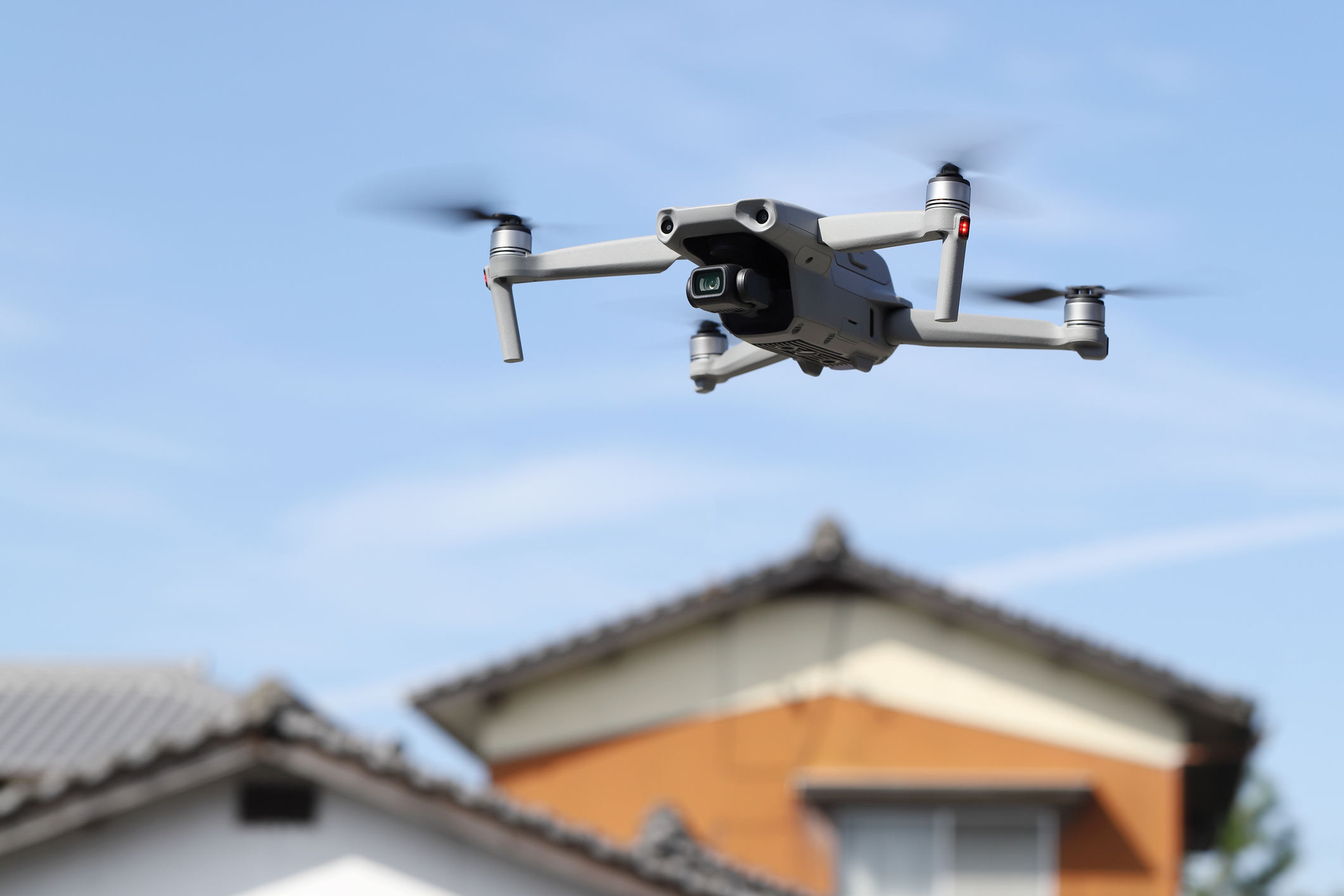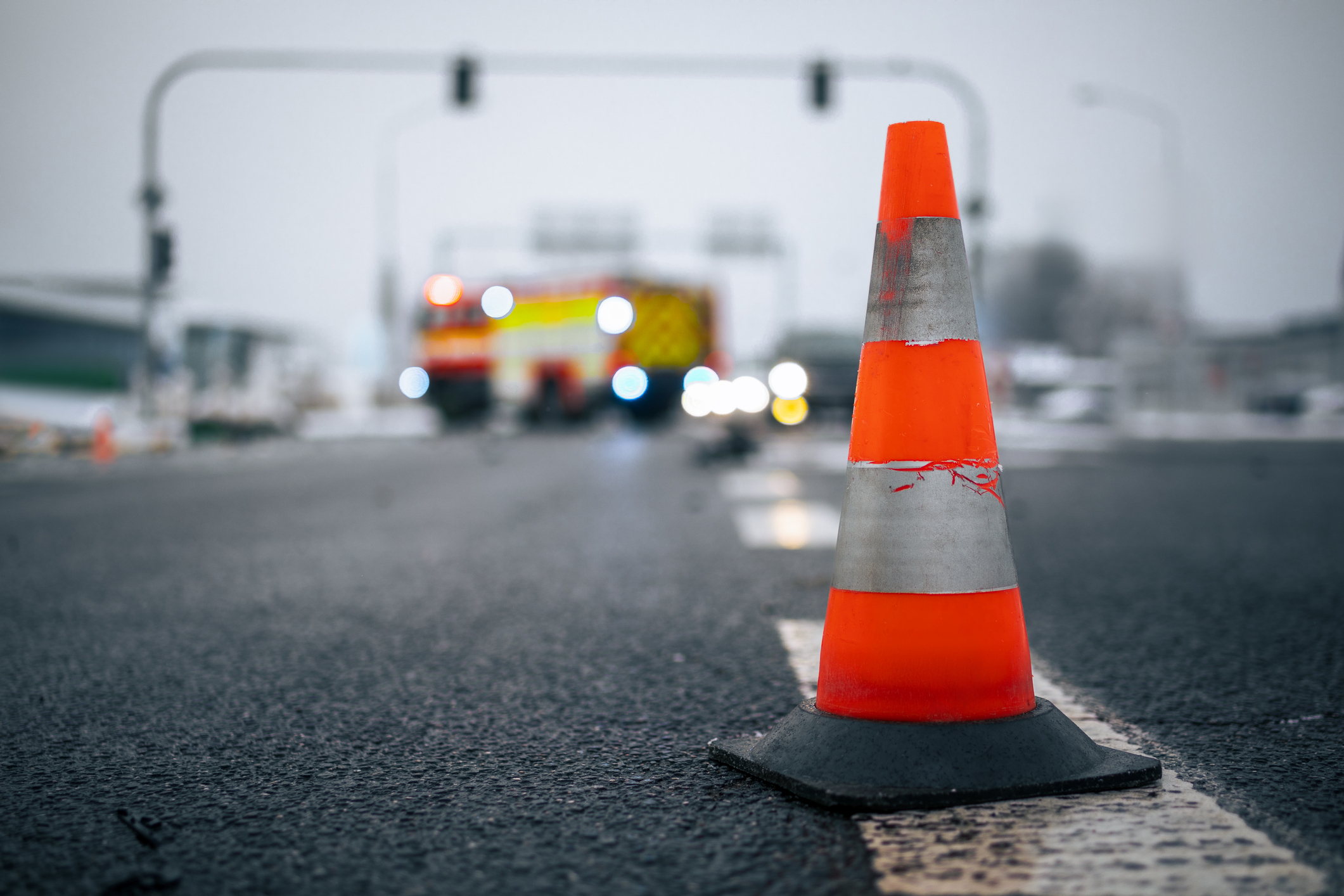Collision vs Comprehensive Car Insurance: Which Do You Need?
When considering car insurance policies, do you need comprehensive or collision coverage? Here are instances where adding both makes sense.

Profit and prosper with the best of Kiplinger's advice on investing, taxes, retirement, personal finance and much more. Delivered daily. Enter your email in the box and click Sign Me Up.
You are now subscribed
Your newsletter sign-up was successful
Want to add more newsletters?

Delivered daily
Kiplinger Today
Profit and prosper with the best of Kiplinger's advice on investing, taxes, retirement, personal finance and much more delivered daily. Smart money moves start here.

Sent five days a week
Kiplinger A Step Ahead
Get practical help to make better financial decisions in your everyday life, from spending to savings on top deals.

Delivered daily
Kiplinger Closing Bell
Get today's biggest financial and investing headlines delivered to your inbox every day the U.S. stock market is open.

Sent twice a week
Kiplinger Adviser Intel
Financial pros across the country share best practices and fresh tactics to preserve and grow your wealth.

Delivered weekly
Kiplinger Tax Tips
Trim your federal and state tax bills with practical tax-planning and tax-cutting strategies.

Sent twice a week
Kiplinger Retirement Tips
Your twice-a-week guide to planning and enjoying a financially secure and richly rewarding retirement

Sent bimonthly.
Kiplinger Adviser Angle
Insights for advisers, wealth managers and other financial professionals.

Sent twice a week
Kiplinger Investing Weekly
Your twice-a-week roundup of promising stocks, funds, companies and industries you should consider, ones you should avoid, and why.

Sent weekly for six weeks
Kiplinger Invest for Retirement
Your step-by-step six-part series on how to invest for retirement, from devising a successful strategy to exactly which investments to choose.
If you plan to finance or lease a vehicle, your lender requires full coverage auto insurance. Two components of full coverage are collision and comprehensive car insurance.
Even if you own your vehicle, both of these policies offer financial protection you might need if you're in an accident. Say you accidentally hit a pole causing damage to your car. In the event you don't have collision insurance, you would have to pay for the repairs out of pocket.
Here’s what you need to know about collision vs comprehensive car insurance and whether or not you need it.
From just $107.88 $24.99 for Kiplinger Personal Finance
Become a smarter, better informed investor. Subscribe from just $107.88 $24.99, plus get up to 4 Special Issues

Sign up for Kiplinger’s Free Newsletters
Profit and prosper with the best of expert advice on investing, taxes, retirement, personal finance and more - straight to your e-mail.
Profit and prosper with the best of expert advice - straight to your e-mail.
Collision vs comprehensive car insurance
Collision insurance: If you are involved in a car accident with another vehicle, regardless of who is at fault, collision coverage will pay for any damages to your own vehicle. If you get into a single-car accident, collision coverage will cover damages to your car in that case as well. For example, if you hit a street sign or pole, collision insurance will cover those damages.
However, collision coverage is usually expensive to add to your car insurance policy. Collision coverage costs an average of $814 per year, according to Forbes. While the price is high, it could end up saving you money in the long run. If you do get into an accident and damage your vehicle, you'll only have to pay your deductible.
Comprehensive insurance: Comprehensive insurance covers your vehicle up to its actual cash value for non-collision accidents. This includes damage from severe weather, like flood, hail or fire, vandalism, theft, falling objects and collision with an animal. Comprehensive coverage is generally cheaper than collision coverage, costing, on average, $367 a year, according to Forbes.
If you live in an area with high levels of crime where a break in or theft is likely to occur, live somewhere prone to flooding or live in a rural area where the odds of hitting a deer are quite high, you may need comprehensive insurance more than other drivers.
Combined collision and comprehensive Coverage: Many drivers find it worthwhile to have both collision and comprehensive coverage, as each protects against different types of risks. Collision coverage helps cover the cost of damages if you're in an accident, while comprehensive coverage protects against non-collision incidents like theft, weather damage, and vandalism.
Combined, they offer more extensive financial protection, which is especially valuable if you own a newer, high-value vehicle. For such vehicles, bundled coverage can provide peace of mind, knowing you're protected on and off the road.
Below you can use our tool to get personalized rates from top carriers today.
Which do you need?
Roughly 80% of insured drivers purchase comprehensive coverage in addition to liability insurance, and 76% purchase collision coverage.
However, if you own your vehicle, you'll have the option to forgo comprehensive and collision coverage if you decide you don't need it. Here's what to consider.
— Can you afford to repair any damages to your vehicle that may happen as a result of an accident? If your car gets stolen, can you afford to purchase a new vehicle? If not, adding comprehensive and/or collision coverage to your policy can provide financial protection if either of these events occur.
— How much is your vehicle worth? In some cases, adding collision or comprehensive coverage to your policy isn’t worth it. Collision and comprehensive insurance covers up to the actual cash value of your vehicle, minus the deductible. So if you have an old car, you’ll likely end up paying more money in premiums than the amount of money you’ll get back from the insurer. For this reason, dropping collision coverage on older vehicles can help you save on your auto insurance premium.
Related Content
Profit and prosper with the best of Kiplinger's advice on investing, taxes, retirement, personal finance and much more. Delivered daily. Enter your email in the box and click Sign Me Up.

Erin pairs personal experience with research and is passionate about sharing personal finance advice with others. Previously, she was a freelancer focusing on the credit card side of finance, but has branched out since then to cover other aspects of personal finance. Erin is well-versed in traditional media with reporting, interviewing and research, as well as using graphic design and video and audio storytelling to share with her readers.
-
 Quiz: Do You Know How to Avoid the "Medigap Trap?"
Quiz: Do You Know How to Avoid the "Medigap Trap?"Quiz Test your basic knowledge of the "Medigap Trap" in our quick quiz.
-
 5 Top Tax-Efficient Mutual Funds for Smarter Investing
5 Top Tax-Efficient Mutual Funds for Smarter InvestingMutual funds are many things, but "tax-friendly" usually isn't one of them. These are the exceptions.
-
 AI Sparks Existential Crisis for Software Stocks
AI Sparks Existential Crisis for Software StocksThe Kiplinger Letter Fears that SaaS subscription software could be rendered obsolete by artificial intelligence make investors jittery.
-
 4 At-Fault States With No-Fault Insurance Rules You Should Know
4 At-Fault States With No-Fault Insurance Rules You Should KnowThink you live in an at-fault car insurance state? These four still have some tricky no-fault insurance laws you should know about.
-
 Is There a Downside to Switching Your Insurance Frequently?
Is There a Downside to Switching Your Insurance Frequently?You keep finding lower rates every time you shop for insurance. Is there any reason not to take the better deal?
-
 No-Fault Car Insurance States and What Drivers Need to Know
No-Fault Car Insurance States and What Drivers Need to KnowA breakdown of the confusing rules around no-fault car insurance in every state where it exists.
-
 Why Your Home Insurance Might Not Protect You If Someone Else Lives There
Why Your Home Insurance Might Not Protect You If Someone Else Lives ThereLetting a relative stay in a second home or inherited property can quietly change your insurance coverage and leave you exposed to costly liability claims.
-
 The 1-Month Rule for Setting Your Car Insurance Deductible
The 1-Month Rule for Setting Your Car Insurance DeductibleThe ideal car insurance deductible balances risk and savings. Here's how to find it.
-
 How Drones Can Affect Your Insurance Coverage
How Drones Can Affect Your Insurance CoverageHow insurers are using aerial imagery to assess homes, the backlash from policyholders and how state regulators are trying to rein in the practice.
-
 Does Your Car Insurer Need to Know All Your Kids? Michigan Cases Raise Question
Does Your Car Insurer Need to Know All Your Kids? Michigan Cases Raise QuestionWho you list on your policy matters more than most drivers realize, especially when it comes to who lives in your home.
-
 Is Home Insurance Tax Deductible?
Is Home Insurance Tax Deductible?With home insurance rates on the rise, you might be hoping to at least claim the cost as a tax deduction. Here's what you need to know ahead of tax season.